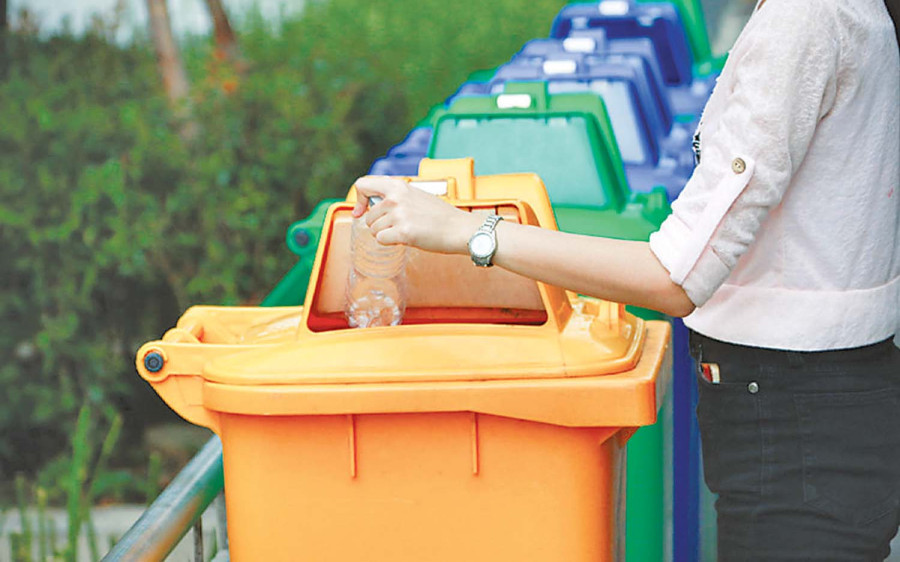National
KMC to enforce waste segregation rules in all 32 wards
Turning waste to compost has already started in 89 community schools of the metropolis.
Post Report
Residents of the Kathmandu Metropolitan City (KMC) will soon have to segregate their household waste into degradable and non-degradable categories. The city office has decided to enforce waste segregation rules across all 32 wards.
Officials said, once the new rules take effect, waste collectors who go door-to-door for garbage collection will only pick up segregated waste—degradable and non-degradable.
“We will strictly enforce this rule throughout all 32 wards,” said Sarita Rai, chief of the Environment Department at the KMC. “We are outfitting our garbage trucks with separate compartments to keep the waste sorted.”
The metropolis started segregating waste in ward 27 in February, and later expanded the practice to wards 5, 7, 10, 12, 24, and 27.
Officials said they were encouraged to enforce the waste segregation rules across all 32 wards due to the programme's success, which started in some wards in the last fiscal year.
“We find waste segregation a doable task,” said Rai. “Our experience encourages us to enforce the rules across all 32 wards. We will also encourage other local units to adopt similar measures, which will help reduce the volume of the waste we send to the landfill.”
Degradable waste materials are being turned into compost at the KMC’s waste transfer station. Officials said that the metropolis is also using reagents to speed up the compost-making process.
The metropolis uses the compost in city gardens and parks and also distributes some of it to local residents.
Officials at the department said they have installed 1,000-litre compost bins at 89 community schools across the metropolis. These bins are used to convert degradable waste into compost. Also, the city office has been selling compost bins to residents for Rs1,000, which generally cost over Rs3,000 in the market, officials say.
To tackle the city’s waste issues, the KMC is not only producing compost from discarded materials, but also generating biogas and electricity.
Waste segregation at the source was one of the solutions Mayor Balendra Shah promoted to address Kathmandu’s chronic garbage problem. Upon taking office, Shah urged city residents to start separating waste at home using different bins. However, the initiative faced challenges largely due to a lack of preparation on the KMC’s part.
The Kathmandu Valley produces over 1,200 tonnes of solid waste daily, with nearly 60 percent originating from the KMC alone. Experts estimate that 60 percent of the organic waste originating in the Valley can be converted into compost, while the remaining 30 percent of non-degradable waste can be recycled.




 13.12°C Kathmandu
13.12°C Kathmandu













